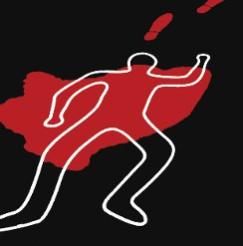A charity chairman has been killed, but who's the culprit? Delve into a leadership nightmare in the first of Shirley Otto's three-part governance detective story.
Lucy wondered at the slightly derelict look of the tenement where Clearway, the charity that had hired her to help evaluate its information technology (IT) programme, was located. Clearway helped resettle young offenders, and the project used volunteer ex-offenders to teach young offenders’ IT skills. “More than run-down,” she concluded, as she stepped over a chunk of masonry in her path.
Once she had found the flat that was the Clearway offices, Lucy was very surprised to find the front door open and seemingly no-one about. Lucy was early, as usual, but she was to meet the chair and chief executive (CE) here before the board meeting to talk about the work required by the Inclusion Foundation who funded the IT project.
Lucy walked into what she assumed was the meeting room and looked round for the data projector for her presentation. Her gaze instead registered a figure, and she started forward with a greeting before going weak at the knees and collapsing into a chair. A man was slumped on the table, his head in a pool of blood. Lucy screamed. She wanted to move forward to help him but could not; instead she groped for her mobile phone. Then in her panic she dropped the phone and it slid under the table. Fighting a sick feeling she went down on her knees and under the table to retrieve the phone.
Martin and Kevin were deep in conversation as they came into the meeting room. “We must sort him out and as quickly as possible,” Kevin was saying, before Martin signalled to him to be quiet. Then they both stopped and stared at the slumped figure. “God, Charles! What’s happened?” Moving towards Charles, Martin was startled to have Lucy back into him from under the table. “What have you done? Who are you?” he shouted, grabbing her arm; “Kevin, ring 999; get an ambulance.”
Recovering himself, Kevin rummaged in his bag for his phone. “Police more like, Charles looks dead to me,” he muttered.
Other people were now filling the room; Miriam and Kamran stopped in the doorway. “Why the police at a board meeting?” Miriam asked. Martin pointed to the still figure; “Charles is dead, he has been killed, and this young woman has something to do with it.” Miriam, stunned, shifted her gaze from Charles to Lucy. Lucy was white with shock but equally angry about Martin’s rough grip on her arm. She protested her innocence, sounding haughty through fear. Miriam took in Lucy’s youth, well-cut jacket and clear open face. “You’re from the Inclusion Foundation aren’t you; here to talk to the board about the evaluation?” Lucy nodded. “Let her go, Martin; it’s highly unlikely she assaulted Charles.”
Who would want to hurt Charles?
Martin let Lucy go and turned to Kevin. “Are the police and ambulance coming?” “Yes, both,” replied Kevin, “but who would want to hurt Charles enough to kill him?”
Miriam turned to Lucy and, apologising for her bad manners, offered to introduce her to the others in the room. “The board members are Martin, and Kamran our treasurer; I am the CE and Kevin is the administrator,” and looking towards the bloody figure, she continued “and he is, or was, Charles Winterborne, our chair.”
Suddenly the room was full of people and noise. More board members had arrived, as had the police and paramedics.
Several hours later, Charles had been removed and the police had finished their preliminary interviews and departed, leaving an officer at the front door of the tenement. Lucy sat silently with the others in the office, unable or unwilling to go. Kamran was in the meeting room praying. At last, Miriam broke the silence. “So Charles is dead, and very likely murdered. Why would anyone want to hurt him?” Elaine, the vice-chair, turned on her: “Charles was a snob and always poking his nose into things that weren’t his business.” “Elaine, behave yourself, the man’s dead,” exclaimed Martin.
“Then if it was someone who hated Charles it was probably Geri,” said Kevin. “No!” Elaine glared at him; Kevin shrugged. Elaine went on: “OK! Charles was out to ruin Geri; destroy her career by going to the press.” Miriam started to speak but Elaine silenced her with a gesture. “You are new here Miriam, you don’t know half of it, and you’re not much use because of it.”
Elaine turned to Lucy and explained: “Geri is a board member, she is also an ex-client of Clearway. She sings salsa rock and has a big following on the web. Recently she was picked up for assault whilst drunk and disorderly; Charles wanted her off the board. He said she was a bad influence on our clients. They had a bad row at the last meeting, Geri can be foulmouthed, and so Charles threatened to teach her a lesson by going public. He knows lots about her – he was chief probation officer when she was last inside. Geri went for Charles, trying to scratch his face; she got as far as spitting on him.” Elaine rounded on the group: “Geri has not actually been convicted; she has had a hard life. At least she has guts – which is more than can be said for some people,” looking at Kamran as he came into the room.
Martin spoke quietly: “Being picked up for assault is a breach of her duty as a trustee, or will be when and if Geri is convicted. If she is we will have to dismiss her.” Elaine, furious, shouted: “Over my dead body; now Charles Winterborne is dead I am the chair.” Realising what she had just said Elaine went red and dropped her face into her hands.
“Well then,” Kamran said quietly, “if it wasn’t Geri then who killed the chair”?








